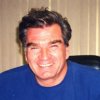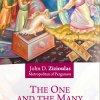7. His Final Years and Repose in Serbia
In the years following World War I, Fr. Sebastian traveled many times between America and Serbia, carrying on his untiring pastoral work. As St. Nicholai recorded, in 1921 Fr. Sebastian was "engaged by the American Bible Society to distribute Bibles in the Balkans."[117] In America, he continued to serve not only in Serbian Orthodox churches but also in the homes of believers who lived far from an Orthodox church or were unable to drive to one. One of these, Anna Smilanich, remembers Fr. Sebastian baptizing her as a child in 1926, in her family's home in Long Beach, California.[118]
Fr. Sebastian also made missionary journeys to the Orthodox Mission in Japan, which had long interested and inspired him. St. Nicholai of Zhicha records that Fr. Sebastian, during his lifetime, crossed the Atlantic fifteen times and the Pacific nine times. He also writes that St. Nicholas of Japan, sometime before his repose in 1912, had offered Fr. Sebastian to stay in Japan and serve the Orthodox mission there.[119] Although Fr. Sebastian did not stay there permanently, he was able to visit the Japanese Mission many times, offering his wealth of pastoral experience.
Finally, when Fr. Sebastian crossed the Atlantic for the fifteenth time and came to Serbia, he stayed there until the end. Not long before his repose, his fellow Serbian priests in America wrote to the Patriarch of Serbia: "We take the liberty of mentioning that our Homeland has acknowledged the religious and national work of our elder brother, Archimandrite Sebastian Dabovich, who is spending his old age in retirement."[120] St. Nicholai of Zhicha describes the last years of Fr. Sebastian's life as follows:
"Patriarch Varnava gave him an apartment in the Patriarchate where he stayed until 1938. Then he moved to Zhicha, where he stayed with us for some time, then again to Herceg Novi. On his way to and fro he was steadily accompanied by Rev. Jovan Rapaich, whom he loved most of all and who took true filial care of the old man. Finally he returned definitely to Zhicha, his last resort. He stayed with us until the end of 1940. From there he wrote many letters to his American friends. In a letter to Mr. Niko Mussich he wrote: 'My body is getting weaker and weaker. I would like to see once more the Golden Gate. All my dearest memories from childhood are concentrated in San Francisco and in the country in which I was born.'[121]
I visited him frequently, asking how the brothers served him. His heart was failing. Fr. Rapaich was with him day and night. The last time, on my return from the diocese, I went to see him. Sitting in an armchair, he was breathing heavily and spoke in a whisper.
'Do you have any wish, Father?' I asked.
'Only the Kingdom of Heaven.'
He spoke no more. These were his last words, representative of his entire career on earth. After that he gave up his spirit. He died on November 30, 1940.
The next day he was buried in the monastery's cemetery alongside another famous archimandrite, Fr. Raphael, formerly the Superior of the great Serbian monastery Hilandar on the Holy Mountain, who died in Zhicha in 1937. During the night the season's first snow covered the earth, and it was cold. Yet His Excellency the American Ambassador Arthur Bliss Lane sent the American Consul General from Belgrade to represent him at the burial. For Fr. Sebastian was an American citizen. Besides, Mr. Bliss Lane had great personal devotion to him, calling him 'my spiritual father Dabovich.'
So ended the earthly pilgrimage of a great servant of Christ and the greatest Serbian missionary of modern times. He was a missionary by words, by deeds, and—what is the greatest of all—by his personal character. He was a viceless man. Meek and unpretentious, he was positive and constructive in all his words and works. Henever engaged in fruitless polemics. Externally he was a little, lean man, with a beard. Just a priest the Serbian immigrants liked, remembering their bearded priests in the Old Country. And behold, he was American-born and not an immigrant. But his conviction was that an Orthodox priest ought to be recognizable as Orthodox by his exterior, too."[122]
Archimandrite Sebastian was buried in the cemetery of the Zhicha Monastery. "At the time of his death," writes Bishop Irinej, "Fr. Sebastian owned nothing more than a gold cross, some books, and a few personal mementos. He had long since given away any significant personal possessions to the poor and needy, choosing for himself a life of poverty, simplicity, and dedicated missionary service."[123]
Ten years after Fr. Sebastian's repose, St. Nicholai wrote of him:
"Here is a man who indebted all the Serbian race, especially all the Serbs and all the Serbian organizations in America. Should that man remain without a monument or any sign of honor on American soil? He does not need it. He did not wish it. All he wished to his last breath was the Kingdom of Heaven, which I believe he has obtained by the grace of his Lord. But his people need it; his posterity needs it. The Serbian people always cultivated the noble virtue of gratitude. Let them express their traditional gratitude to this remarkable Serbian—Father Sebastian Dabovich."[124]
Now, with the transfer of Fr. Sebastian's relics from Serbia to America—to the first Serbian church in America, which he founded in Jackson, California—this outstanding missionary is at last being shown, in his native country, the gratitude of which he is worthy. He sacrificed himself unremittingly for Christ's Holy Church throughout America and the world, creating new churches where they were needed, and spiritually strengthening those that already existed. It was his tremendous love for Jesus Christ and His Church that not only inspired but drove him in his apostolic ministry, that made him burn with zeal as he labored to bring all peoples into the fullness of the Church's grace. We are the inheritors of his spiritual legacy in America—the legacy of a life given wholly to Christ.
"Truly," Bishop Irinej has written of Fr. Sebastian, "this amazing man is deserving of our honor and respect. Even now he is considered worthy of canonization among the Serbian people. May that day indeed come quickly! The epitaph on his tombstone at Zhicha Monastery reads most appropriately, 'The First American Serbian Orthodox Apostle.'[125] Holy Apostle Sebastian, pray for us!"[126]
---
[117] "Report of Bishop Nicholai of Ohrid to the Holy Bishops' Assembly Concerning the Situation and Needs of the Serbian Orthodox Church in America," Sremski Karlovci, June 26, 1921. Quoted in Bishop Sava, p. 93.
[118] Anna was born in 1922 to Drago and Elena Vuksanovic. She now lives in Fresno, California, where her son-in-law, Protopresbyter George Gligich, is the rector of the St. Peter Serbian Orthodox Church.
[119] Bishop Nicholai (Velimirovich), "Father Sebastian Dabovich."
[120] "Statement/Appeal of the Priesthood of the Serbian Orthodox Church of the American-Canadian Diocese, Humbly Sent to His Holiness, Archbishop of Pech and Metropolitan of Belgrade and Karlovac, Dr. Gavrilo, Patriarch of Serbia." (This document
is not dated; since His Holiness Gavrilo was elected patriarch in 1938 it would have been written during the last two years of Fr. Sebastian's life.) Quoted in Bishop Sava, p. 188.
[121] Out of humility, St. Nicholai did not quote the sentence that follows, in which Fr. Sebastian writes: "I am thankful to His Grace Bishop Nicholai, who is doing all he can to restore my health." Quoted in The Diocesan Observer, no. 503 (December
24, 1975).
[122] Bishop Nicholai (Velimirovich), "Father Sebastian Dabovich."
[123] Mirko Dobrijevic (Bishop Irinej), p. 13.
[124] Bishop Nicholai (Velimirovich), "Father Sebastian Dabovich."
[125] As will be seen in the article that follows, this same epitaph was later inscribed on Fr. Sebastian's headstone in Jackson, California.
[126] Mirko Dobrijevic (Bishop Irinej), p. 15.




